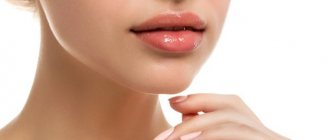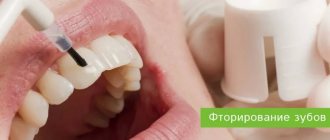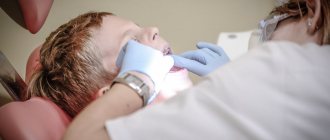Content
- Types of appetite disorders
- Prevention of appetite disorders in children
- Causes
- Consequences of long-term eating disorders
- Treatment
Appetite performs a regulatory function in the body, signaling the need to replenish nutrients. Appetite is associated with the work of the food center, which is located in the hypothalamus and cerebral cortex. It is in these areas that food-related impulses are processed and where satiety signals come from. One of the factors that causes the desire to eat is also changes in blood sugar levels. Source: Your Child's Health. The latest reference book./Under the rivers. V.A.Alexandrova. Eksmo Publishing House, 2003
Types of appetite disorders
Anorexia in a child may manifest itself as:
- hyporexia – loss of appetite;
- hyperrexia – its increase in appetite;
- Bulimia – uncontrollable desire for food. With this disorder, the child is not able to control the volume and composition of food eaten;
- anorexia - almost complete refusal to eat. One of the most dangerous violations. Can lead to dire consequences: organ dystrophy, metabolic disorders and even death;
- pararexia – a significant change in taste preferences. The child may have a desire to eat something that is not eaten, for example, chalk or clay. Pararexia often indicates the absence of an element (calcium, potassium, iron, etc.) that is extremely necessary for the child’s body in the daily diet.
Replacing baby teeth with permanent teeth
Eruption of molars begins at the age of 6-7 years. First, the large molars are shown (usually on the lower jaw). Then the pattern of baby teeth eruption is repeated. The incisors on the lower jaw are the first to change, and at the age of 7-8 years, the incisors on the upper jaw are also replaced. At the same time, the lower lateral incisors can also change.
At 8-9 years old, the upper incisors will change. It's the fangs' turn. At the same time (9-10 years), teeth that were not in the primary occlusion - premolars - begin to grow. There are four premolars on each jaw - two on the left and two on the right. At the age of 12, the fangs on the upper jaw will change. At this stage, the formation of the height of the bite begins, which has both aesthetic and functional significance.
The last teeth (wisdom teeth or third molars) appear between the ages of 17 and 25. Only after this can we say that the formation of the dental arches is completely completed.
When replacing baby teeth with permanent molars, it is important to pay attention to the bite. It is easy to correct at a young age, while adults will have to correct it throughout their lives. By regularly visiting a pediatric dentist, you can intervene in the process of bite formation in a timely manner. In addition, a specialist can monitor the eruption of baby and molar teeth (so that it is not too early or late), give recommendations to alleviate the child’s condition, and recommend special baby suppositories or gels for teething.
Prevention of appetite disorders in children
- Diet. The daily amount of food should be divided into 3-5 meals. It is advisable that breakfast, lunch and dinner take place at the same time. The child’s body quickly gets used to the diet, and an appetite appears before the next meal.
- A diet containing all the necessary substances. With proper nutrition, the child’s body receives the elements necessary for growth and vital activity, which is an excellent prevention of not only appetite disorders, but also other diseases associated with it, for example, obesity. A regular diet must include vegetables and fruits, some cereals, meat and fish. The amount of starch and saccharides should be minimal.
Symptoms of teething in a baby:
- ♦The gums are red/white and swollen;
- ♦Salivation has clearly increased;
- ♦Redness/rash appeared around the mouth (due to a large amount of saliva);
- ♦The baby pulls into his mouth and bites all kinds of objects (rattles, pens, daddy’s glasses);
- ♦A runny nose may appear;
- ♦Slight dilution of stool (again due to increased salivation);
- ♦Appetite may worsen (due to pain in the mouth);
- ♦And also the baby has become noticeably more capricious, his sleep is more restless, his mother’s warmth and care are more needed (“hangs in his arms”).
It is important to remember that this period is temporary and will end. Be patient, gather your willpower and try to help your child survive this process. The mother’s actions to permanently return the former dream to the family are the same as during the child’s illness.
And now the important information. Key, I would say! Attention!
Causes
The loss or sharp increase in food needs in children can be associated with a whole range of factors:
- deviations may be symptomatic. For example, when infants are teething, loss of appetite is quite normal. Loss of desire to eat also occurs during the acute stage of influenza or ARVI, and this is absolutely normal. The child’s body directs all resources to fight the disease, temporarily suppressing the digestive function. You should not force-feed a sick child even the healthiest food - when things get better, the appetite will be completely restored. Source: https://articles.komarovskiy.net/ya-kushat-ne-xochu.html E.O. Komarovsky I don’t want to eat... 01/18/2007
- diseases of the digestive system. Various types of gastritis, duodenitis and other similar pathologies have a significant impact on the child’s eating behavior.
- anemia, that is, a lack of hemoglobin in the blood - cells that carry oxygen. The presence of anemia can accompany a number of diseases. This condition in a child requires urgent contact with a specialist and a full examination.
- disorders in the endocrine system. Diabetes mellitus, thyroid disease – these endocrine disorders are accompanied by suppressed appetite or a sharp increase in the need for food.
- various mental illnesses. Symptoms of many psychopathologies are an unreasonable change in taste preferences.
- diseases of the nervous system.
- vitamin deficiency (when the child’s body does not receive the required amount of vitamins and microelements).
- benign or malignant tumors.
Loss of appetite may indicate that the child has quite serious illnesses. Eating promiscuity leads to either deep exhaustion or obesity. Both of these extremes can undermine health. Parents need to pay due attention to instilling healthy eating habits in their children.
How teeth are cut
Teething is a complex process, because at this time tissues are formed, tooth roots grow, and gums are rebuilt. Moreover, teeth begin to form during pregnancy, starting from the 6th week. Around this time, calcium begins to be deposited in the tissues of future teeth.
Next comes the fun part – teething. It is considered normal if teeth begin to cut between 4 and 7 months. But every body is unique, so everyone cuts their teeth differently. It depends on many things, for example:
- From genetics. Often the age at which a child begins to cut teeth depends on when his relatives - mom, dad, grandparents - started cutting teeth.
- From nutrition. If your baby doesn't have enough vitamins and minerals, such as vitamin C or calcium, his teeth will start cutting later.
- From the course of pregnancy. If there was fetal toxicosis during pregnancy, this will also slow down the appearance of teeth.
And normally, teeth are cut in pairs, that is, the lower central incisors appear first, then the upper central incisors, the upper lateral incisors - the lower lateral incisors, the upper first molars - the lower first molars, etc. But even if the order is disrupted, this does not always mean any illness or serious violation.
Consequences of long-term eating disorders
As already mentioned, long-term deviations in eating behavior can lead to either obesity or dystrophy, that is, depletion of the body. Consequences may also be:
- sleep disorders;
- decreased immunity due to lack of nutrients necessary for the body;
- the appearance of cracks or stretch marks on the skin (with rapid growth of adipose tissue);
- disruption of the activity of internal organs; Source: E.V. Pavlovskaya Selective appetite in children // Issues of modern pediatrics / 2013/ Volume 12/ No. 6
- depression of brain activity (decreased memory and speed of thinking).
When to sound the alarm
In those places where teeth erupt, many biologically active substances are released, for example, histamine, leukotrienes, prostaglandins, etc. They cause the symptoms that every parent is familiar with:
- Temperature increase. Normally, when teething, the temperature should be low-grade, that is, no more than 38 degrees;
- Swelling, pain and redness of the gums.
This is a normal baby reaction to teething. As a rule, the baby refuses to eat, but at the same time pulls toys into his mouth to chew on them. Due to the fact that the child constantly chews something, the nerves of the gums are irritated and a lot of saliva is released, and since the child does not yet know how to control saliva, it flows out of the mouth. The child also becomes more excitable than usual - he sleeps less, is constantly capricious, and becomes irritable.
Life hack: to help your child and relieve tooth pain, buy a special teething toy. This toy can be filled with water and placed in the refrigerator. When the baby chews on it, the toy will cool the inflamed gums and thereby partially relieve the pain.
But there are symptoms that parents often confuse with a normal reaction to the appearance of teeth:
— Digestive disorders – diarrhea, vomiting, loose stools;
— Temperature above 38-39 degrees, which does not subside for several days;
- Cough, rash, swelling.
These symptoms indicate that there is an infection in the child’s body that needs to be treated.
Treatment
During puberty and rapid growth, children require a larger supply of nutrients than usual. If the child feels well, is socially active, and his weight corresponds to height and age standards, there is no need to interfere. If there are deviations, it is necessary to show the child to a pediatrician. The specialist will conduct an examination and also prescribe a set of tests and studies. Based on their results, the pediatrician will refer the child to a specialized specialist.
Medical doctors have extensive experience in treating appetite disorders in children. We can undergo all the necessary examinations using modern medical equipment.
Sources:
- Your child's health. The latest reference book./Under the rivers. V.A.Alexandrova. Izv-vo Eksmo, 2003
- https://articles.komarovskiy.net/ya-kushat-ne-xochu.html E.O. Komarovsky. I don’t want to eat... 01/18/2007
- E.V. Pavlovskaya. Selective appetite in children // Issues of modern pediatrics / 2013/ Volume 12/ No. 6
The information in this article is provided for reference purposes and does not replace advice from a qualified professional. Don't self-medicate! At the first signs of illness, you should consult a doctor.
What should I give my baby when teething?
Medicines specially designed for this difficult period of a child’s growing up help reduce the level of anxiety of both the baby and the parents. Soothing, antiseptic, and painkillers are available in the form of gels, suppositories and ointments. Let's look at the most popular of them:
● Viburkol suppositories for teething children
Homeopathic suppositories Viburkol are a working and very popular remedy that has antipyretic, soothing and anti-inflammatory effects. Rectal suppositories effectively relieve mild pain, thereby helping the child feel better.
The herbal composition of the drug (chamomile, plantain, sleep-grass) allows you to avoid complications that are frequent companions of chemical drugs in traditional medicine.
● Cholisal gel for teething children
Lowering temperature, reducing inflammation, relieving pain, resisting microbes and fungi, Cholisal gel has become a salvation for millions of mothers. Relieving almost all symptoms of teething in babies, this drug effectively and quickly calms them down, which means it gives parents the opportunity to enjoy peace of mind.
The gel contains neither lidocaine nor sugar, and it works due to the antiseptic cetalkonium chloride and the anesthetic choline salicylate.
The instructions for the gel indicate an age limit of one year. However, the process often begins earlier, so Cholisal is also applied to children under one year of age when teething.
Prices
| Name of service (price list incomplete) | Price |
| Online opinion of a pediatrician (SPECIAL) | 0 rub. |
| Appointment (examination, consultation) with a pediatrician, primary, therapeutic and diagnostic, outpatient | 1750 rub. |
| Consultation (interpretation) with analyzes from third parties | 2250 rub. |
| Prescription of treatment regimen (for up to 1 month) | 1800 rub. |
| Consultation with a candidate of medical sciences | 2500 rub. |







